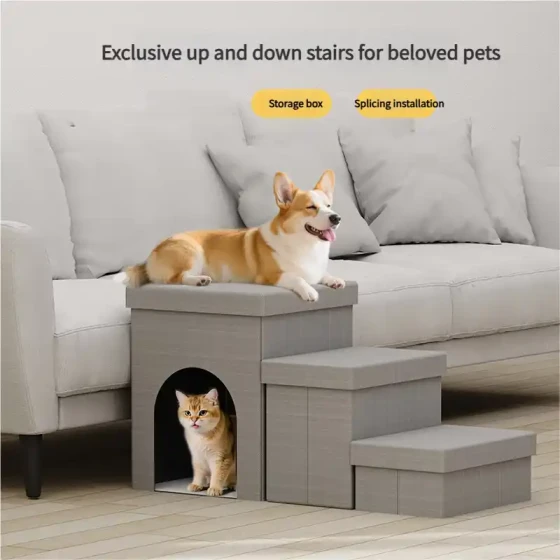Devon Rex Cat Price Guide: A Comprehensive Analysis from Entry Level to Show Grade
The Devon Rex cat (Devon Rex) has steadily risen in popularity in the domestic pet market in recent years due to its elf-like appearance and affectionate personality. This curly-haired breed from the UK, characterized by large ears, wavy fur, and an energetic nature, has captured the hearts of many cat lovers. But what is the actual price of the "elf cat"? Why does it range from a few thousand yuan to tens of thousands? This article provides a comprehensive analysis of the Devon Rex cat pricing system, covering appearance standards, pedigree certification, and purchase channels to help you find the most suitable "little elf" within your budget.
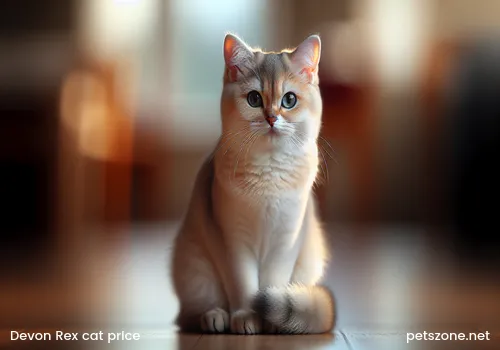
Overview of the Devon Rex Cat Market
In the domestic pet market, the Devon Rex cat is a relatively niche but high-end breed, with a wide price range from a few thousand yuan to tens of thousands. According to the latest 2025 market survey data, the basic price of Devon Rex cats domestically is usually between 5,000-10,000 yuan, covering most pet-grade Devon Rex cats. For individuals with outstanding appearance or pure pedigree, the price can rise to 8,000-15,000 yuan. Show-grade Devon Rex cats, due to their competition potential and high-quality bloodlines, generally cost above 20,000 yuan, with certain top bloodline show cats reaching 30,000-50,000 yuan.
Compared to common breeds like British Shorthairs or American Shorthairs, Devon Rex cats are noticeably more expensive, mainly due to their rarity and breeding difficulty. The number of professional Devon Rex breeders in the country is limited, while market demand keeps growing, driven by celebrity influence (such as Hua Chenyu raising a Devon cat), leading to supply-demand imbalance and higher prices. Additionally, Devon Rex cats have a relatively low reproductive rate, usually only 3-4 kittens per litter, with kitten survival rates lower than some common breeds, increasing breeding costs.
From a regional standpoint, prices of Devon Rex cats in first-tier cities like Beijing, Shanghai, and Guangzhou are generally higher than in second- and third-tier cities, primarily due to consumption levels and cattery operating costs. However, with the popularization of pet air transport services, regional price differences are gradually narrowing. Seasonal factors also affect prices: typically, spring is the peak breeding season with more kittens available in summer, causing prices to drop slightly; while prices tend to hold firm in winter due to reduced breeding.
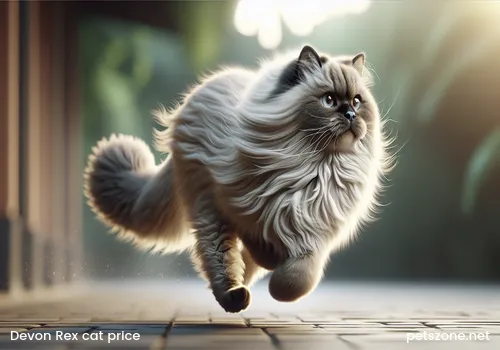
Core Factors Affecting Price
The significant price differences in Devon Rex cats are the result of multiple factors. Understanding these key elements helps buyers more accurately assess reasonable price ranges and avoid being misled by inflated quotes or poor quality.
Appearance Grade is the primary factor determining Devon Rex pricing. Pet-grade Devon Rex cats (suitable for ordinary households) typically cost 5,000-8,000 yuan. These cats may not fully meet strict pedigree standards—for example, ears may not be large enough, or coat curliness may be imperfect—but still have the basic characteristics and healthy constitution of a Devon Rex. Breeding-grade Devon Rex cats (for professional breeding) are priced between 10,000-20,000 yuan, usually with excellent pedigree and near-standard appearance, with only minor flaws. Show-grade Devon Rex cats (with competition potential) cost above 20,000 yuan; these nearly perfectly fulfill breed standards, with outstanding overall balance and performance, and often come from prestigious bloodlines.
Pedigree Purity directly influences pricing. Devon Rex cats with internationally recognized pedigree certificates (such as CFA, TICA, FIFE) usually cost 30%-50% more than those without certificates. High-quality pedigree not only guarantees the cat's appearance traits but also signifies more stable genetics and lower hereditary disease risks. Notably, although Devon Rex cats resemble Cornish Rex cats externally, they have different genetics and cannot produce curly-coated offspring if crossed; purebred Devon Rex are therefore more expensive.
Coat Color and Patterns are also important pricing variables. Common colors like solid black, blue, or creamy white tend to be cheaper, while rare colors such as chocolate, cinnamon, or pointed patterns (similar to Siamese) command higher prices. Special patterns like tabby or tortoiseshell may add a 10%-20% premium. Recently, Devon Rex cats with amber eyes have been highly sought after due to rarity, often priced significantly higher than normal eye colors.
Age Factor impacts pricing as well. Kittens aged 2-6 months command the highest prices because this is the best age to sell and adapt to new homes. Adult cats (older than 1 year) usually see a 20%-40% price decrease unless they are award-winning or breeding-quality individuals. Neutered cats are generally cheaper than intact ones, but responsible breeders often require pet-grade cats to be sold sterilized.
Table: Weight Analysis of Factors Affecting Devon Rex Cat Prices
Detailed Price Tiers of Devon Rex Cats
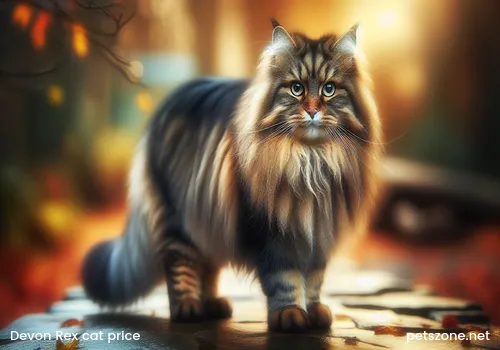
Market prices for Devon Rex cats can be divided into several distinct tiers, each corresponding to different quality, purpose, and purchasing considerations. Understanding these differences helps potential buyers make informed choices based on their needs and budgets.
Entry-Level (3,000-5,000 yuan): Cats in this price range usually have noticeable defects in appearance, such as smaller ears, insufficient coat curliness, or atypical facial features. Some may be mixed breeds with impure pedigree or retired breeding adults. Health concerns require special attention when purchasing; cats in this range may come from backyard breeders or non-professionals and may have genetic or infectious disease risks. This tier is only recommended for families with limited budgets and low appearance requirements. Always conduct on-site inspections and demand health check certificates before purchase.
Pet Grade (5,000-10,000 yuan): This is the preferred price range for most domestic Devon Rex cats kept as companions. Cats at this level have good appearance, featuring main Devon Rex traits (large ears, wavy coat, elf-like face). They may not be suitable for competition or high-end breeding but are perfect as pets. Certified catteries usually provide basic vaccinations and deworming; some include sterilization and pedigree certificates. This price range offers individuals with gentle temperaments and health assurance, making it the best value choice.
Breeding Grade (10,000-20,000 yuan): Devon Rex cats optimized for breeding, with near-standard appearance and clear pedigree, often from excellent breeding lines. These cats typically have outstanding body structure and coat quality, good genetic test results, and breeders retain their breeding rights. Buying breeding-grade cats requires breed knowledge and breeding experience and is not recommended for beginners. The price covers complete pedigree files, genetic testing reports, and breeding guidance. Top catteries may also provide ongoing breeding support.
Show Grade (20,000 yuan and above): The elite group within Devon Rex cats, boasting excellent appearance and top-tier bloodlines with potential for winning cat shows. These cats usually come from champion lines, possessing balanced body structure, perfect head features, and high-quality coat. Top show-grade cats can reach prices from 30,000 to 50,000 yuan, especially if exhibiting rare genetic traits or unique coat colors. Purchasing a show-grade cat is not merely acquiring a pet but an investment, requiring long-term cooperation with professional breeders.
For enthusiasts with limited budgets, adopting an adult Devon Rex cat is also an option. Some professional breeders seek adoptive homes for retired breeding cats, usually priced between 3,000-6,000 yuan. These cats tend to have stable temperaments and good health, making them economical choices. Regardless of price level, remember the market law of "you get what you pay for"; beware of "discounts" significantly below market prices to avoid buying sick or seriously substandard cats.
Purchase Channels and Pitfall Avoidance Guide
Choosing the right purchase channel is vital to ensuring the quality and health of a Devon Rex cat. Different channels vary greatly in price, quality guarantee, and after-sales service. Knowing these differences helps buyers avoid risks and find reliable sources.
Professional Registered Catteries are the most recommended buying source, especially those specializing in Devon Rex breeding. These catteries are usually registered with international cat associations (such as CFA, TICA), with breeding cats from quality bloodlines and scientific breeding plans. Although prices are relatively high (pet grade 8,000-15,000 yuan), they include pedigree certificates, health guarantees, and complete vaccination records. Excellent catteries provide purchase contracts clarifying health guarantees; some also offer lifelong breeding consultation. Before buying, verify the cattery registration on the cat association website, review past customer feedback, and request video tours of the breeding environment.
Home Breeders are a moderate-priced choice (5,000-10,000 yuan). These small-scale breeders often keep only a few breeding cats but focus more on individual care. However, not all home breeders are responsible; buyers should visit in person to confirm parents’ health and housing conditions and request photos and health records of parent cats. High-quality home breeders also offer basic health guarantees and vaccination certificates.
Pet Shops and Cat Dealers are higher risk purchase channels. While prices may be lower (3,000-6,000 yuan), origins are unclear, and health status is unguaranteed; “week cats” (cats falling ill within a week of purchase) are common. Cats from such channels often lack pedigree proof and may be products of inbreeding or mixed breeding, carrying long-term health hazards. Unless reliable source and health status can be verified, this option is not recommended.
Online Platforms and Social Media purchases require extra caution. Some unscrupulous sellers steal others’ cat photos to scam buyers or hide health issues. If online buying is necessary, select platforms supporting third-party escrow payment, request real-time video viewing of the cat, and sign detailed purchase agreements. Never impulsively pay due to “low price promotions,” as reputable breeders rarely discount substantially on quality cats.
When buying Devon Rex cats, several key pitfalls should be noted: first, ask for photos and pedigree info of both parents; purebred Devon Rex have both parents of the same breed; second, check the cat’s health condition—active behavior, bright eyes, smooth coat, and clean anus are basic standards; third, confirm vaccination status, at least completing 2-3 doses of core vaccines; fourth, inquire about common genetic disease screenings like hypertrophic cardiomyopathy (HCM) gene tests; fifth, avoid buying unweaned kittens (under 12 weeks), as early separation may cause behavioral issues.
Identifying purebred Devon Rex cats involves several key features: very large ears (low set, broad base); a short, prominent muzzle; prominent cheekbones; a wedge-shaped head; medium-sized oval eyes; a slender but muscular body; and a unique wavy coat. Cats lacking these features may be mixed breed or poor quality. After purchase, it is recommended to take the cat to a veterinary hospital for a comprehensive check to confirm the health status matches the seller’s description.
Comprehensive Analysis of Keeping Costs
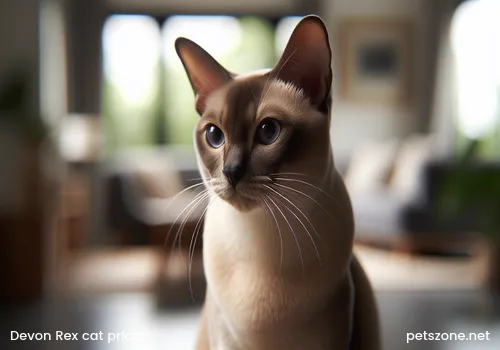
Owning a Devon Rex cat not only involves a one-time purchase cost but also requires consideration of ongoing maintenance expenses. Understanding these continuous costs helps prospective owners plan financially, ensuring economic pressure does not affect the cat’s quality of life.
Initial Essential Investments amount to approximately 2,000-5,000 yuan. This includes quality litter boxes (200-500 yuan), feeding and water bowls (100-300 yuan), cat trees (500-2,000 yuan), cat beds (200-600 yuan), transport crates (300-800 yuan), and other basic equipment. Devon Rex cats are particularly lively and active, so providing sufficient toys (200-500 yuan) and climbing facilities is recommended to meet their exercise needs. Unlike typical short-haired cats, Devon Rex cats are sensitive to temperature; winter care may require pet heating pads (200-400 yuan) or heated cat beds (500-1,000 yuan) for warmth.
Daily Food Expenses vary based on diet. Premium commercial cat food costs about 200-400 yuan monthly (brands like Royal Canin, Orijen). Raw meat feeding is more expensive at around 500-800 yuan monthly but better suits cats’ natural diets. Devon Rex cats eat relatively little but some may be picky; high-protein, palatable foods are recommended. Treats (freeze-dried, cat sticks, etc.) cost roughly 50-100 yuan per month, used for training and interaction rewards. Especially note that Devon Rex cats have sensitive digestive systems; sudden food changes may cause diarrhea, so keep consistent brands or switch gradually.
Health and Medical Expenses are an indispensable part of keeping Devon Rex cats. Annual basic medical care includes check-ups (200-500 yuan), vaccinations (200-300 yuan), deworming (100-200 yuan), totaling about 500-1,000 yuan. Devon Rex cats may face breed-specific health issues such as Burmese hypokalemia (familial episodic low potassium myopathy), showing symptoms like difficulty walking or head control problems, with high treatment costs. Purchasing pet medical insurance (annual fee about 1,000-3,000 yuan) is recommended to cover most accident-related medical expenses. Neutering surgery costs about 500-1,500 yuan, depending on hospital tier and anesthesia method.
Grooming Expenses are relatively low. Devon Rex cats shed little and usually do not require frequent grooming, but gentle brushing once or twice weekly (using soft brushes) helps maintain skin health; professional grooming brushes cost around 50-150 yuan. Unlike long-haired cats, bath frequency can be lower (once every 2-3 months); professional pet grooming charges about 100-200 yuan per session. Basic care such as nail clipping and ear cleaning can be done at home, with tool investment about 100-200 yuan.
Other Potential Costs include pet boarding (50-200 yuan/day), training courses (500-2,000 yuan/session), pet photography (300-1,000 yuan/session), which are optional but may enhance quality of life. Devon Rex cats are clingy by nature; prolonged solitude may cause anxiety. For owners who travel frequently, pet companionship services or smart monitoring devices (200-800 yuan) may be necessary.
In total, the first-year cost of keeping a Devon Rex cat (excluding purchase price) is about 10,000-15,000 yuan, with annual costs thereafter around 5,000-8,000 yuan. This expense level is significantly higher than that of ordinary house cats, but many owners find it worthwhile given the companionship and unique personality the Devon Rex provides. Prospective owners should carefully assess their financial situation before purchasing to ensure stable, high-quality long-term care.
Frequently Asked Questions
Q: Why are Devon Rex cats so much more expensive than ordinary cats?
A: The high price of Devon Rex cats is determined by several factors: first, breed rarity with few professional breeders domestically and supply shortage; second, breeding difficulty with small litter sizes (average 3-4 kittens) and high kitten-raising requirements; third, pedigree maintenance costs including importing quality breeding cats and genetic testing fees; fourth, strong market demand, especially driven by celebrity effects making the Devon Rex a popular "internet famous cat." Compared to common breeds like British Shorthairs and American Shorthairs, the Devon Rex has a higher breeding threshold, collectively driving market prices up.
Q: How to judge if a Devon Rex cat’s price is reasonable when buying?
A: Judging price reasonableness requires considering multiple factors: first, verify if the appearance meets breed standards (large ears, wavy coat, wedge-shaped face, etc.); second, check parents’ pedigrees and awards; third, confirm if pedigree certificate, vaccination, and health guarantees are included; lastly, compare market average prices for cats of the same grade. If the price is significantly below market levels (e.g., a "show grade" sold for only 8,000 yuan), there are likely appearance or health issues. Consulting multiple breeders and understanding market conditions before deciding is advisable. Remember, reputable catteries rarely offer large discounts on quality cats.
Q: What common health issues do Devon Rex cats face? What should be specially monitored?
A: Devon Rex cats may have breed-specific health problems, most notably Burmese hypokalemia (familial episodic low potassium myopathy), with symptoms including muscle weakness and difficulty walking. Additionally, their large, thin ears easily accumulate earwax and require regular cleaning; their skin is relatively sensitive and prone to seborrhea or allergies; some individuals may suffer from hypertrophic cardiomyopathy (HCM). It is recommended to review the genetic testing reports of parent cats before purchase, perform regular check-ups after buying, maintain indoor temperatures above 20°C, and avoid catching colds.
Q: Are Devon Rex cats suitable for beginners? What is their personality like?
A: Devon Rex cats are extremely affectionate, often described as "dog-like cats." They are intelligent, lively, enjoy interacting with people, and can learn simple commands. Personality-wise, they are very suitable for family keeping and even novice cat owners can get along well with them. However, Devon Rex cats are sensitive to temperature and require careful environmental control; they are energetic and need plenty of playtime and space; some may be quite vocal or particularly clingy. New owners should fully understand the breed characteristics and prepare adequate time, effort, and financial resources before adopting.
Q: Where can reliable Devon Rex breeders be found?
A: Reliable breeders can be found through several channels: directories of registered catteries on international cat association websites (such as CFA, TICA); reputable pet forums (e.g., Douban cat lover groups) recommendations; breeders participating in large cat shows (like Shanghai International Pet Show); and active breeders on social media platforms like Instagram (be cautious to verify authenticity). Reliable breeders typically allow visits to breeding facilities; proactively provide parent cats’ information and photos; have comprehensive purchase contracts and health guarantees; avoid overbreeding multiple breeds; and care about buyers’ follow-up care. Avoid buying from unknown sources or sellers without a physical address.
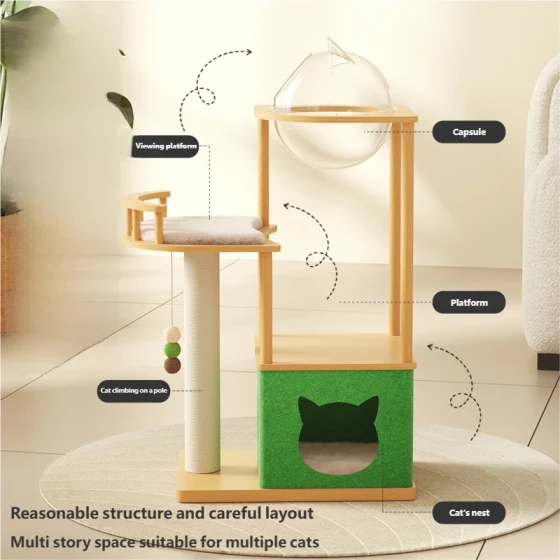
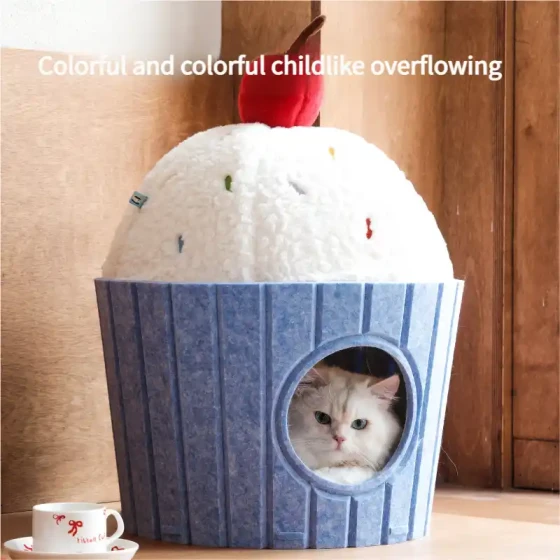
-560x560.webp)
